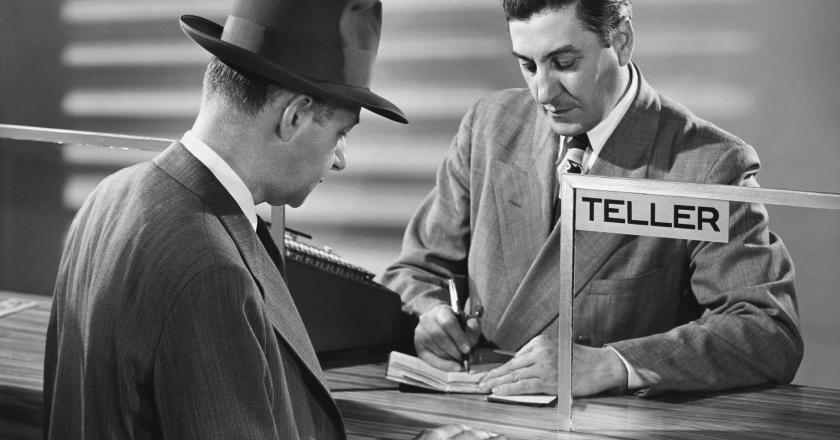A cautionary tale of family drama, failure to plan, and taking the wrong advice
The Smith family is in the middle of quite a feud over some valuable rings, owned by the late Mrs. Mary Smith. The eldest sibling, Abby, came over to our office the day after Mrs. Smith’s funeral quite upset because she and her siblings have been disagreeing over who should receive two diamond rings. The diamond rings are valued at $5,000 each, but hold greater sentimental value because of how long they have been in the Smith Family. Mrs. Smith had little personal property; other than the diamond rings, she had: a revocable living trust set up twenty years ago, a stock broker account valued at $20,000, and $150,000 in a bank savings account. At the funeral emotions ran high causing serious arguments, frustration, and hurt feelings between the four Smith siblings. The youngest sibling, Diane, left town abruptly with no question as to her distrust of Abby’s ability to resolve the dispute.
Following the death of her husband five years ago, Mrs. Smith moved to a continuing care retirement community where, for the past two years, she received skilled nursing care. At this point Abby took Mrs. Smith to the bank to have Abby’s name added to her mother’s account so she could write checks for her mother. An innocent enough gesture speaking to Abby’s efforts to care for her aging mother. The bank teller recommended that the account be removed from the trust, and made into a joint account into Mrs. Smith and Abby’s names. Thinking this was a good way to achieve the reason for their visit, Abby and Mrs. Smith took the bank teller’s advice and did just so.
The trust from twenty years ago was amended following Mrs. Smith’s death, by a family friend attorney, to make Abby the Successor Trustee and Executor, replacing the second oldest sibling Ben. For the past five years Abby has been the Successor Trustee of the trust and Executor of the will, and had been her mother’s Durable Power of Attorney for Medical and Financial decisions prior to Mrs. Smith’s death.
In the days since Mrs. Smith’s death the four siblings, Abby, Ben, Colin, (a bachelor with no real interest in what happens) and Diane have been feuding with each other over the fate of the diamond rings. Abby claims that Mrs. Smith gave her the two rings for her own daughters (Mrs. Smith’s granddaughters) while she was in the skilled nursing facility. Both of Abby’s daughters have plans to get married, which include the two heirloom diamond rings. However, Ben does not believe Abby’s story about the rings being gifts for the granddaughters. He wants at least one of the rings.
All four siblings assumed everything will be divided equally among them, which is what Mrs. Smith’s trust dictates. The trouble is that the stock broker account is in the trust, but the bank account is not! Not since the bank teller advised Mrs. Smith and Abby to change it to a joint account outside the trust. Legally, this means that at the time of Mrs. Smith’s death, the $150,000 bank account became exclusive property of Abby (the joint account holder).
Now, Abby can choose to gift ¾ of the $150,000 bank account to her siblings, but legally she doesn’t have to do so. In fact, if Abby did gift a quarter of the account at $37,500 for each sibling she would be making taxable gifts because it would exceed her $14,000 per person annual gift tax exclusion amount. This puts Abby in a tough situation with her siblings: keep all the money, or split it with her siblings but pay the gift tax?
Now, on top of the drama with the diamond rings, Abby is in an awkward situation with her siblings over her decisions regarding the savings account.
Unfortunately for Abby and her siblings, this situation was very preventable. Whatever the bank teller’s intentions, creating a joint account for Mrs. Smith and Abby failed to consider the many other related difficult issues. Joint bank accounts are a good arrangement for married couples, but in very few other situations. Bank tellers seem to like them because they are easy to setup. This is why you bank teller is in fact not your estate planner.
Mr. and Mrs. Smith took an excellent first step twenty years ago in establishing and funding their revocable living trust. But, they did not take the subsequent steps needed to protect their investment. Frequently wives let their husbands handle the financial affairs and do not educate themselves sufficiently to carry on after their spouse dies. This is particularly true for the elderly. At that point, it is critical to involve a trusted child, and better yet more than one child, in understanding the estate plan and related processes.
Remember the Smith family had a family friend attorney change the estate plan making Abby Successor Trustee, Executor of the Will and Power of Attorney for Health Care and Financial decisions, removing Ben (the previous Successor Trustee and Executor of the Will). This type of situation is common; often parents name their eldest son or the eldest child as Successor Trustee and Executor of the Will for no other reasons than tradition and sibling seniority. For the Smith Family, naming Abby as Successor and Executor rather than Ben may have been a good idea at the time, however naming the pair as Successor and Executor jointly and severally allows more than one child the responsibilities thereof. This may have taken some of the pressure off of Abby, and reduced some tension after the death of Mrs. Smith. The decision of whom to name as Successor and/or Executor is an important one. For the Smith Family naming an adult child (or children) who are involved (unlike the third sibling, Colin the bachelor) or who live close (unlike the youngest sibling, Diane who lives in another state) was a wise choice.
A regular review of Mr. Smith’s estate plan, with a knowledgeable estate planning attorney, would have uncovered the problems with the joint bank account. Several methods were available that would have worked more effectively than a joint bank account. The account could have been left in the trust, with Abby as Co-Trustee. Abby could have been made an authorized signer on the account, with the account designated as payable-on-death (POD) to the trust. This means that Abby could have written checks for her mother (which was the original intention), and after Mrs. Smith’s death the content of the bank account would be paid to the trust…which would have been dispersed equally among the siblings as originally intended by Mr. and Mrs. Smith twenty years ago. The durable power of attorney document authorized Abby to make these arrangements, even if Mrs. Smith could not physically make it to the bank. A smaller account could have been setup outside the trust, payable-on-death (POD) to the trust, with Abby as the authorized signer. This would have eliminated the exposure of the bank account to Abby’s potential legal problems and creditors.
As for the diamond rings…Mrs. Smith could have eliminated the misunderstanding by simply writing a note specifying who she wishes to receive them. This could have been done in her own handwriting, at any time before her death; no legal formality required. In some cases when older adults are unable to write or type out their wishes using a video camera to record the person speaking in their own words about their wishes, is an alternative; extra care needs to be taken to record the date and a physical copy of the recording (like a DVD or thumb drive) with the will.
Ben, Diane (and to a lesser extent Colin the Bachelor) had to go off of Abby’s word that Mrs. Smith meant the diamond rings to be gifts for the granddaughters. When people are grieving and upset it is difficult to take for fact things of which they don’t agree. This is why Ben was so upset at the funeral, and probably contributed to Diane’s leaving town angry with Abby.
A regular review of all aspects of an estate plan, including a review of account ownership and beneficiary designations, is far less expensive that litigation that results from a situation like the Smith family faced. This is to say nothing about the family dispute, dissolving sibling relationships, and heartbreak that could have been prevented.


 RSS Feed
RSS Feed